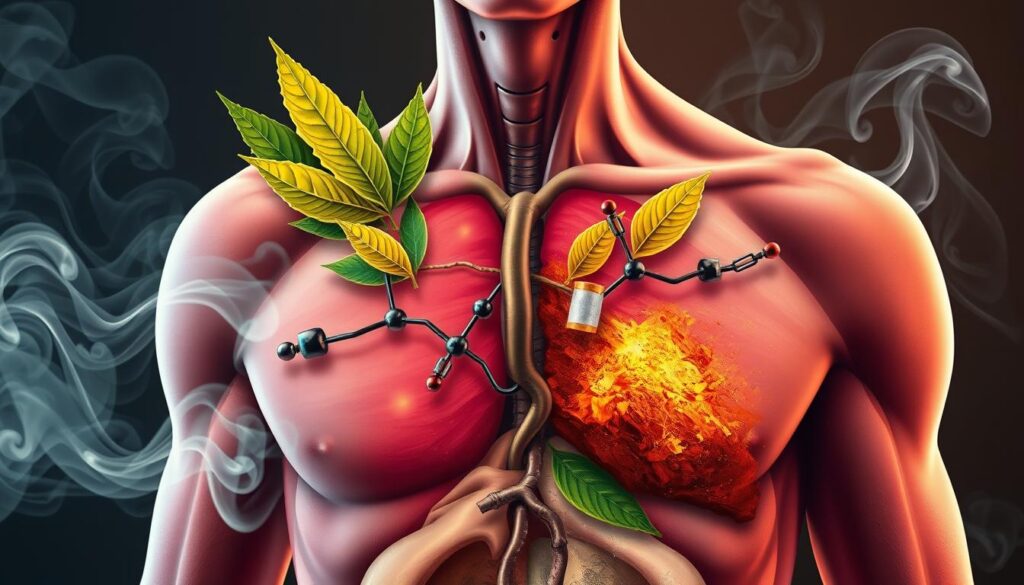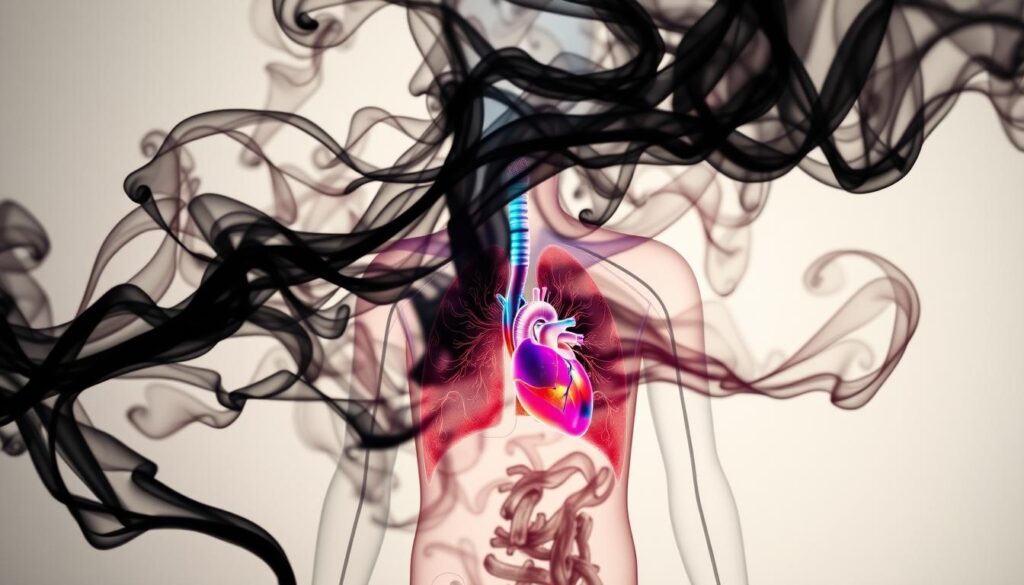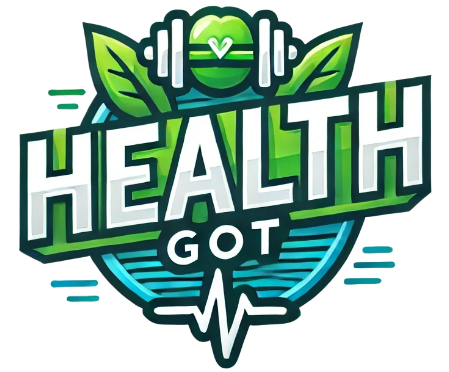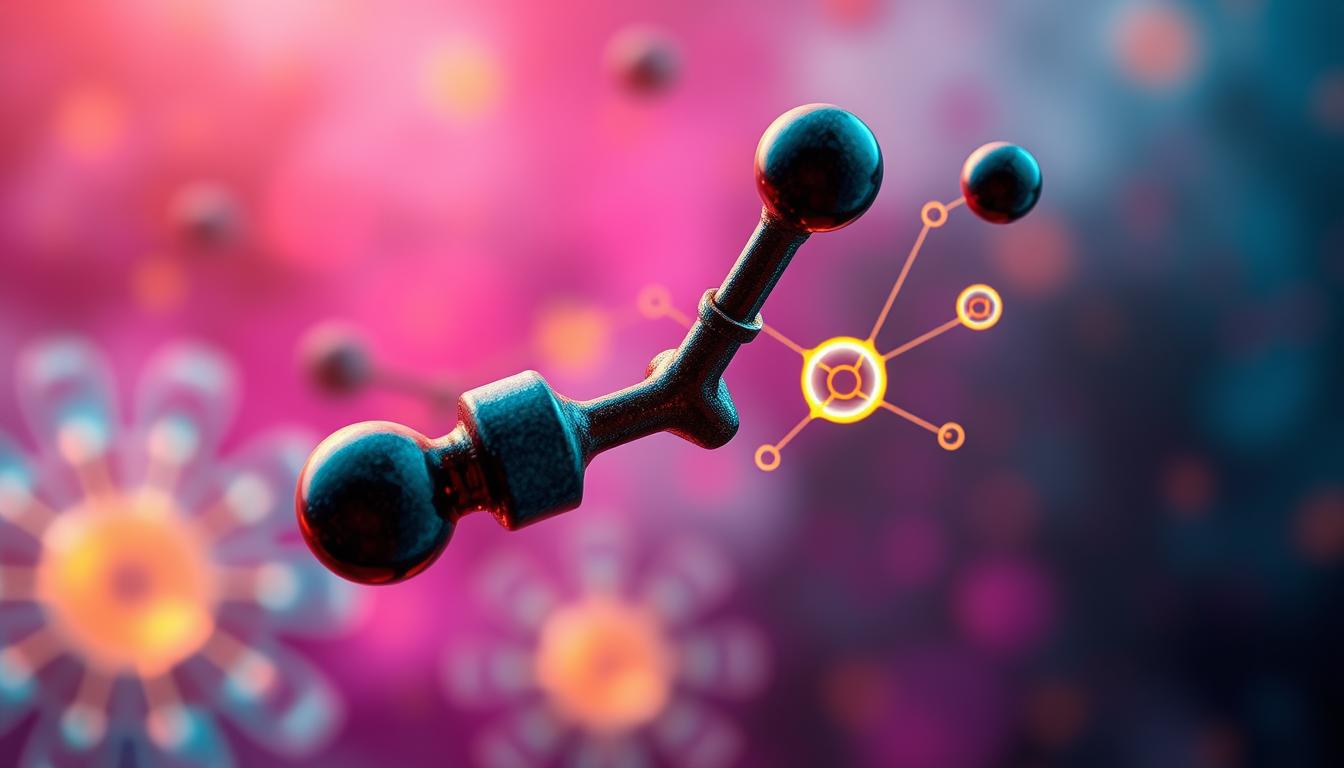Does Nicotine Increase Testosterone ?
As a former smoker, I know the strong pull of nicotine. But is there a hidden benefit? Could it boost your testosterone levels? This question has puzzled many, and scientists have been studying it closely.
In this article, we’ll look into the link between nicotine and testosterone. We’ll examine the latest research to see if there’s truth to this connection. Whether you’re health-focused or just curious, the answers could change how you feel about your lifestyle.
Table of Contents
Key Takeaways
- Nicotine has a complex relationship with the endocrine system and can influence various hormones, including testosterone.
- Research findings on the impact of nicotine on testosterone levels are mixed, with some studies suggesting a potential increase while others indicate a decrease.
- The form of tobacco consumption (cigarettes, smokeless tobacco, cigars, or vaping) may play a role in the effect on testosterone levels.
- Factors such as duration and frequency of nicotine use can also contribute to the observed changes in testosterone production.
- Nicotine use, regardless of its potential impact on testosterone, is associated with significant health risks that should be carefully considered.
Understanding the Relationship Between Nicotine and Hormones
Nicotine, found in tobacco, affects the body’s hormone balance. It can change how hormones work, especially testosterone levels.
How Nicotine Affects Your Endocrine System
The endocrine system controls many body functions through hormones. Nicotine, a stimulant, can mess with this system. It can upset the balance of hormones like cortisol and adrenaline.
Key Hormones Influenced by Nicotine Consumption
Nicotine’s effects go beyond the HPA axis. It can also impact other hormones:
- Testosterone: The link between does smoking increase testosterone and tobacco testosterone is complex. Some studies say nicotine might raise testosterone briefly, but others suggest it could lower it over time.
- Estrogen: Nicotine can mess with estrogen production, leading to hormonal imbalances in both men and women.
- Thyroid Hormones: Nicotine can also affect the thyroid gland. This can change how hormones like T4 and T3 are made.
It’s important to understand how nicotine affects hormone levels. This is especially true for those who smoke or use tobacco testosterone products. More research and medical advice can help us understand the risks of nicotine.
Does Nicotine Increase Testosterone: Research Evidence
The link between nicotine and testosterone is a topic of ongoing research. Some studies hint at a connection, but the evidence is mixed. The exact way nicotine affects testosterone is still a mystery.
A 2013 study in the Journal of Addiction Medicine found smokers had more testosterone than non-smokers. The researchers thought nicotine might boost testosterone by affecting the hypothalamus-pituitary-gonadal axis.
“The findings suggest that nicotine consumption may have a positive effect on testosterone levels, but more research is needed to fully elucidate the relationship.”
But a 2018 study in Andrologia found the opposite. It said nicotine use was linked to lower testosterone in men. The study suggested nicotine might harm the endocrine system and testicular function.
- Some studies found no big difference in testosterone levels between smokers and non-smokers. This suggests the relationship is more complex than thought.
- Things like how long and how often someone uses nicotine, and their genetics and hormones, might affect testosterone levels.
In summary, the science on nicotine and testosterone is still up in the air. We need more research to understand how they might be connected.
The Impact of Different Forms of Tobacco on Testosterone Levels
Tobacco’s effect on testosterone varies by product type. Knowing how different tobacco products affect hormones is key. This knowledge helps understand how your hormones might change.
Cigarettes vs. Smokeless Tobacco Effects
Many studies have looked at how smoking affects testosterone. Some say smoking might lower testosterone, but the evidence isn’t clear. Smokeless tobacco, like chewing tobacco or snuff, seems to have a smaller impact. Some studies show it doesn’t affect testosterone much.
Cigars and Vaping: Testosterone Connection
Research on cigars and testosterone is ongoing. Some studies suggest cigars might slightly raise testosterone, but the effect is small. Vaping’s impact on testosterone is still being studied. Early findings suggest vaping might not change testosterone levels much.
Duration and Frequency Considerations
How long and how often you use tobacco affects testosterone. Occasional use might differ from long-term, heavy use. When you test testosterone also matters. Short-term effects might be different from long-term ones.
The link between tobacco and testosterone is complex. Different tobacco products have different effects. The type, how long you use it, and how often all play a role in your hormonal balance.
| Tobacco Product | Effect on Testosterone |
|---|---|
| Cigarettes | Potential decline, but findings are inconclusive |
| Smokeless Tobacco | Less pronounced effect, some studies show no significant impact |
| Cigars | Slight increase, but the magnitude is relatively modest |
| Vaping | Limited research, preliminary evidence suggests no significant influence |
Remember, tobacco’s effect on testosterone is complex. Many factors can influence this relationship. Always talk to a healthcare professional to understand how tobacco might affect your hormones.

Health Risks and Side Effects of Nicotine Use
Nicotine’s effects on testosterone are still being studied. But, it’s important to know the health risks and side effects of nicotine. Nicotine’s impact on your overall health is significant, no matter its effect on testosterone.
Nicotine, found in tobacco products, can harm your health in many ways. It can make your heart rate and blood pressure go up. It can also make you feel anxious or irritable.
Long-term use of nicotine can lead to serious health problems. These include cardiovascular disease, stroke, and various forms of cancer.
Nicotine can also hurt your lungs. Smoking or vaping it can cause lung damage. It can increase the risk of respiratory infections and make conditions like asthma or COPD worse.
Nicotine affects your brain and nervous system too. It can cause cognitive impairment, mood disorders, and addiction. Nicotine is very addictive, making it hard to quit and leading to health risks and withdrawal symptoms.
Even if nicotine’s effect on testosterone is debated, its health risks are clear. Your health and well-being should always come first when considering nicotine use.

Conclusion
The link between nicotine and testosterone is complex. Some studies show nicotine might boost testosterone. But, most research points to a more complicated and often negative effect.
Nicotine affects the endocrine system, which controls hormone levels. This can disrupt hormones like testosterone, leading to health issues. The exact effects depend on the type of tobacco, how often it’s used, and individual differences.
Thinking carefully about using nicotine-containing products is key. The impact on testosterone is still being studied. But, focusing on overall health is essential in this complex area.
When making health choices, talking to doctors is a good idea. They can help understand the full picture. This way, you can make choices that fit your needs and goals.
References and Further Reading
To learn more about nicotine and testosterone, check out these credible sources and studies. They help you understand how tobacco and nicotine affect your hormones and endocrine system.
A study in the Hormone and Metabolic Research journal shows nicotine can lower testosterone in men. It looked at how nicotine impacts the body’s hormone-making process.
For more insights, visit the Centers for Disease Control and Prevention (CDC) Tobacco-Related Fact Sheets. They offer detailed info on tobacco and nicotine’s health effects. The National Cancer Institute also has useful resources on tobacco and cancer.
FAQ
Does nicotine increase testosterone?
Does smoking increase testosterone?
Is nicotine good for testosterone?
How does tobacco affect testosterone?
Do cigars increase testosterone?
Does nicotine increase testosterone in the long run?
Source Links
- Here are some external resources that explore the relationship between nicotine use and testosterone levels, particularly its impact on hormonal health:
- National Center for Biotechnology Information (NCBI): A study on how nicotine interacts with endocrine functions and its potential influence on testosterone levels. This research provides insights into how smoking may lead to hormonal imbalances. Read more here.
- Centers for Disease Control and Prevention (CDC): This resource delves into the broader health impacts of smoking, including its effects on reproductive hormones and overall hormonal health. Learn more here.
- FDA Overview on Smoking and Hormones: The FDA highlights how smoking, including nicotine exposure, can disrupt hormone production and adversely affect reproductive health. Find detailed information here.
- National Institute on Drug Abuse (NIDA): This source provides a research report on tobacco use and its effects, including the interplay between nicotine and bodily functions such as hormone regulation. For in-depth details, visit this link.
- These resources are excellent starting points for exploring how nicotine might affect testosterone levels and overall hormonal health.

